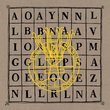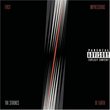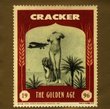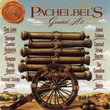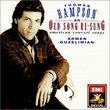| All Artists: Nina Nastasia Title: Run to Ruin Members Wishing: 0 Total Copies: 0 Label: Touch & Go Records Original Release Date: 1/1/2003 Re-Release Date: 6/3/2003 Genres: Alternative Rock, Folk, Pop, Rock Styles: Indie & Lo-Fi, Singer-Songwriters Number of Discs: 1 SwapaCD Credits: 1 UPC: 036172094127 |
Search - Nina Nastasia :: Run to Ruin
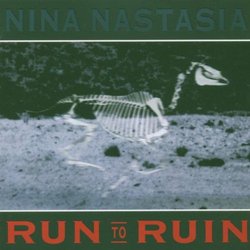 | Nina Nastasia Run to Ruin Genres: Alternative Rock, Folk, Pop, Rock
Nina Nastasia's previous album, The Blackened Air, quietly established her as a cult icon, thanks to its enthralling, intimate blend of southern gothic influences, country, and folk. With Run to Ruin, her third full-length... more » |
Larger Image |
CD DetailsSynopsis
Amazon.com Nina Nastasia's previous album, The Blackened Air, quietly established her as a cult icon, thanks to its enthralling, intimate blend of southern gothic influences, country, and folk. With Run to Ruin, her third full-length release, Nastasia seems to recoil from the attention, filling the disc with dense, dark songs that are mostly fixated on unsavory subjects like drug abuse and toxic love. In contrast, Gillian Welch's stark Americana seems sunny. Yet the more Nastasia withdraws into her own world, the more attractive her music becomes. The backstabbers, sharp cliffs, and ambulances that litter unsettling songs like "You Her and Me" and "Superstar" prove that human condition at its worst brings out the singer at her best. --Aidin Vaziri Similarly Requested CDs
|
CD ReviewsStrangely compelling for something so minimal?. fetish_2000 | U.K. | 10/29/2003 (5 out of 5 stars) "Her music sidesteps easy categorisation, as it's beautifully minimal in construction, yet incredibly rich in substance for something so minimal......(and strangely so compelling) Nina Nastasia creates unparalleled intimate spectral music, that is sung in a vocal that although highly trained is frequently just above softly spoken (although occasionally blossoming into a pitch-perfect orchestral ballad chorus), aided and abetted by incredibly gifted multi-instrumentalists that play a variety of classical instruments (Cello, violin, acoustic guitar, piano, accordion & Drums), and a feature the long forgotten "Bowed Saw" instrument , and contribute only the most minimal of sounds, to form a tenderly delicate and musically stark & stripped-down sound, allowing Nina's Vocals room to quietly captivate the listener...and the most remarkable thing is that its all so minimal and stark that theoretically, her sound shouldn't be so passionate & Enthralling for something so stark, yet it remains powerfully beautiful.... Similar artists are undoubtedly hard for me to compare her to, as she is something completely unique to herself....but if artists' such as The Black Heart Procession, Neko Case, Calexico mean nothing to you....then (and this is a very rough approximation) think an Orchestral version of "Portishead"....they share the same brooding sombre theatrics, dark gloomy instrumentation, Bittersweet vocals, exceptionally talented female vocalists, and have a sound that is completely unique to them....(although I'd really hate to say it publicly but `Nina's' work may possibly have the edge!!) ...Easily the most deeply affecting Album I've listened to for some time... P.s. You'll really need a decent Stereo/Speaker set-up to really do this album justice, and to be able to listen to it uninterrupted....but if the right conditions are meet, then (hopefully) you guys will understand with it is I'm trying to convey in this Recommendation. A Truly, Truly Wonderful album...." Stylus Magazine review - 8.7 Gentry | Bloomington, MN United States | 06/14/2003 (4 out of 5 stars) "If The Blackened Air was Nina Nastasia singing from a creaky, dilapidated barn -- then Run to Ruin takes place in the smoldering cinders of that same barn after its torching by a spurned lover. Such a dramatic shift in song writing can be likened to Dean Wareham's Romantica transfiguration from bleary-eyed cynic to a maudlin infatuator. I don't know what instigated Nastasia's metamorphosis, but just last album she was singing "My body's young and here to please him / I serve him right / I go with him" and "I can see the stars above / I can give it all up / Up to you / All for you! / All for you!" but now she moans "All the love / I have left / You won't know / You won't know" under a funeral-like arrangement complete with haunting accordion and pounding drums. At an ephemeral thirty minutes long, fifteen shorter than The Blackened Air, Run to Ruin -- Nastasia's junior album, second for Touch and Go, and third with Steve Albini at the boards -- is her most focused yet. Vocally, Nastasia is most evocative of Neko Case or Mirah. She is softer spoken than Neko, as well as more reliant on the emphasis of words than vocal strength, and has more of a country-esque modulation than Mirah. Instrumentally, Run to Ruin is heavily influenced by the dark, dusty deserts, Mexican barrios, and all-night truck stops: think Gillian Welch singing for a countrified Dirty Three. On The Blackened Air, Nastasia focused on short bursts of songs (rarely over two minutes long) representing ideas such as forgetfulness, devotion or voyeurism. On Run to Ruin she expands on the longer tracks from The Blackened Air, ("Ocean," "That's All There Is") and delves into the depths of storytelling. "I Say That I Will Go" is told through the eyes of a protagonist who must cross a dirty southwestern town to bail out an unnamed friend. "Regrets" puts a down-and-out dame in a decrepit $35 dollar a night hotel where she can "hear the Spanish screams of girlfriends in the other rooms" who, she reassures herself, are not like her. She hears the women in the other room saying "Make no regrets," but she does so anyway as she prostitutes herself, and becomes just like those in the rooms beside her. "The Body" puts an abusive spin on fidelity ("My blood for you / My lover's bruise / My clothes are scattered / My skull is fractured") with Nastasia singing in a plaintive falsetto which fades out midway and is replaced with a Tosca Tango Orchestra meets bluegrass instrumental romp closer. "On Teasing," similarly builds into a thick wall of instrumentation of cello, accordion, and dulcimer after Nastasia sings of a young girl being swallowed whole by the ornery sea. If there is one central motif to Run to Ruin, it is that elusive and crucial relationship killer: communication. On the straightforward "Superstar," Nastasia sighs "I know what you said" in a matter-of-fact, assuming tone. Going on, she declares/consoles herself by telling no one but herself, that she's a Superstar -- "Not ordinary." "Stay in the conversation" she tells her infatuation as she tries to ignore her competitor in the backseat who she hopes is not listening ("Maybe she's not listening to us / The thoughts in her hands are distracting enough"). The more obvious "We Never Talked" has Nastasia lamenting a lack of communication: "We never talked / About the thing / We witnessed / ... / Our conversations stayed same / From year to year" On the final number, "While We Talk," Nastasia seems to get closure from simply watching her lover eat a slice of cake. Nastasia's pen has sharpened greatly since The Blackened Air. No more does she scratch out mental images and feelings into terse songs, but builds upon those images and experiences -- placing the listener in her worn, ragged shoes -- instead of in our Gucci's, 20 feet away, behind a chained link fence." Not so much a southern as an inner landscape J. Christmas | New Brunswick, NJ | 09/21/2003 (5 out of 5 stars) "I'm not sure why "southern" and "country" come up so much in describing Nastasia--at least on this album, none of the lyrical content suggests such descriptions, nor does the style of the music. It has more in common with New York Art Music of the Knitting Factory variety than it does with country. I'm also not sure about the Welch comparisons--I guess the fact that they both come from LA, and that they both avoid the traps that so many female singers fall into of over soul-ifying their voices, has something to do with it. In other words, both have a slightly more understated, unembellished style than, say, Avril Lavigne.With what it isn't out of the way, what it is: stark, haunting music; loosely, expressively played violin, cello, bass, guitar and drums backing a clear and sad voice. The majority of the tracks, as one listener commented, have fairly simple song structures, instead building and brooding and swirling in dark intense moods. But unlike the other listener, I don't find this to be a flaw.The albums highpoint for me is The Body, where for a moment the storm is cleared by an intricate and angelic melody, and then the band dives back in and murks up the mood again.My one complaint about this otherwise flawless album is that, on a few tracks, after having seen her live recently, I think Albini failed to capture the fullness of Nastasia's voice--making her sound sort of childish and nasaly. I'd take off half a star for that if I could."
|

 Track Listings (8) - Disc #1
Track Listings (8) - Disc #1
